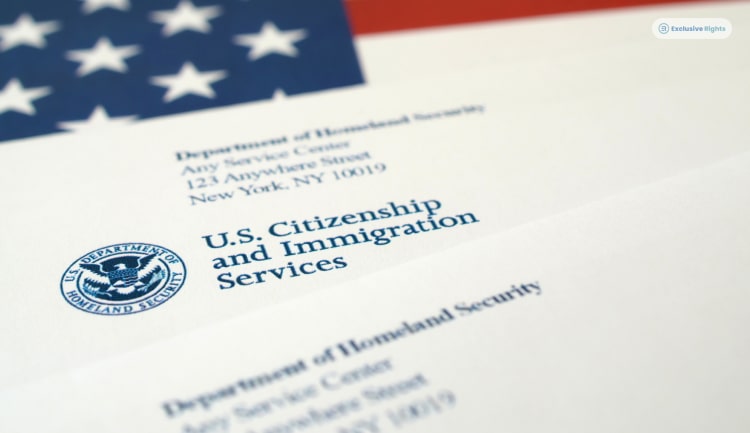
Table Of Contents
Right to a Nationality and the Freedom to Change It: A Contemporary Look
Right to a Nationality and the Freedom to Change It. This seemingly complex phrase refers to a bunch of important rights, and not just the two mentioned it. These have everything to do with who you are and where you belong.
Let’s break it down, shall we?
Right to a Nationality and the Freedom to Change It: Elements

First, the right to nationality means that everyone has the right to have a country they belong to. It’s like being a part of a big family, except it’s a country. So, you have the right to be a citizen of a specific country. If you fit the criteria that they have established, you are a citizen. No one has the right to take that away from you.
In the USA, the requirements for the right to nationality include the following:
i. Birthright Citizenship- If you’re born on US soil, you automatically become a US citizen.
ii. Citizenship by Descent- If one or both of your parents are US citizens, you are eligible to claim US citizenship.
iii. Naturalization Process- If you’re not born a US citizen, you can still become one. It is possible by being a resident for a specific period, displaying good moral character, and also passing an English and civics test.
iv. Special Cases- There are also special circumstances. Refugees, people in national asylum, are eligible for US citizenship.
Right to nationality in the USA is about inclusivity and embracing diverse backgrounds.
Right to a Nationality and the Freedom to Change It: What Else?
Sometimes people want to change their nationality. The freedom to change your nationality allows you to do just that. Let’s dig into the various elements of this right.
a. Acquiring a Nationality-
This means that everyone has the right to become a citizen of a country, either by being born there or by going through a process called naturalization, as discussed above.
b. Protection against Statelessness-
Statelessness is when someone doesn’t have a nationality at all. It’s like not belonging anywhere. So, the right to a nationality includes protection against statelessness, making sure everyone has a country to call their own.
c. Retaining a Nationality-
This means that you have the right to keep your nationality. No one can just take it away from you without a good reason. It’s like holding on tight to your identity and not letting anyone snatch it away.
d. Changing Nationalities-
The freedom to change your nationality allows you to switch things up. If you feel like you’d be happier or better off as a citizen of another country, you have the right to make that change.
So, the right to a nationality and the freedom to change it is all about belonging, identity, and having the power to choose where you want to call home. Remember, your nationality is an important part of who you are, and it’s up to you to decide what feels right.
Right to a Nationality and the Freedom to Change It does seem pretty simple as a concept. However, did you know that it envelops various rights into one? We will tell you about aspects of it that you sure did not think of.
Right to a Nationality and the Freedom to Change It: Chelsea Manning!

Have you heard of a US citizen named Chelsea Manning?
It wasn’t that way always. Chelsea was born Bradley Manning. For a long time, she struggled with her gender identity. Deep down, she knew she was a woman, but her legal name didn’t reflect who she truly was.
- Manning was serving in the military. She leaked a bunch of classified information to WikiLeaks, exposing sensitive government documents about military operations. It led to global debates on government transparency.
- She got arrested and had to face a court-martial. She ended up being imprisoned. But amidst all that, Manning openly talked about her gender identity and made a big announcement. She wanted to transition from male to female.
- She made the brave decision to seek a legal process to change her name. This wasn’t just about picking a new name for the sake of it. It was about aligning her legal identity with her gender identity. Chelsea wanted to be recognized for who she truly was.
- Now, you might be wondering, how does this relate to the right to a nationality and the freedom to change it?
Well, think about it.
Our Right to a Nationality and the Freedom to Change It and legal identity are closely intertwined. They define how we’re recognized by the world. And for Chelsea, this right to change her name meant more than just a mere switch of letters. It meant claiming her true identity by expressing her gender.
Wrapping Up!

Now, let’s take a moment to reflect on this story. I am sure some questions arise in all our minds after reading this case. Let us answer some of them.
- Question: So, how does allowing prisoners to change their legal names and gender identity to the right to a nationality and the freedom to change it?
- Answer: Allowing and respecting a prisoner’s right to express their gender identity and promotes inclusivity. It only goes on to reaffirm that everyone should not have to face complexities just to live as their authentic selves. They should not live while feeling confined by societal norms or, worse, legal restrictions.
In Chelsea’s case, her chosen name reflected that individuals have the right to express their gender identity and be who they truly are. It’s about promoting diversity.
Read More:
All About Freedom Of Belief And Religion
Can You Become A Lawyer By Being A Felony?









